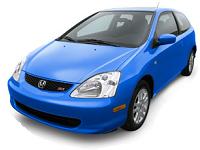i always wondered the same thing, this is only a guess, but i am guessing the more expensive ones are better quality, reduce noise, maintain a cooler temp, and look nice lol, thats just a guess though. I just go with AutoZone pads, I dont AutoX or anything intense.






 Reply With Quote
Reply With Quote







Bookmarks